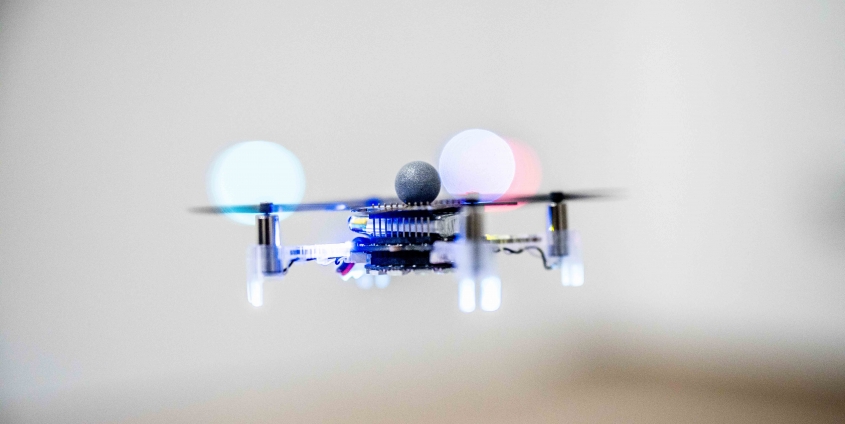Two research teams from the University of Klagenfurt remain in the running to be “Clusters of Excellence”
As recently announced by the Austrian Science Fund FWF, eleven teams have reached the final stage of selection for “Cluster of Excellence” funding. The decisions on Austria’s future beacons of basic research will be made in early 2023. The eleven consortia include the “Multi-drone Systems” cluster initiated and led by the University of Klagenfurt, as well as the “Bilateral Artificial Intelligence” project, which feature scientists from Klagenfurt on their Board of Directors.
The second stage of the selection process for Austria’s new “Clusters of Excellence” funding has drawn to a close: Eleven consortia succeeded in qualifying for the final decision round by virtue of their scientific excellence. The selection by the FWF advisory board hinged on the recommendations of the 16-member international jury, which assessed the innovative potential and scientific excellence on the basis of global peer reviews.
When it comes to the subject of “multi-drone systems”, the University of Klagenfurt, under the leadership of Stephan Weiss ( Department of Smart System Technologies), serves as the principal research institution. Christian Bettstetter (Department of Networked and Embedded Systems) is a further member of the Board of Directors representing the University of Klagenfurt. Researchers at the University of Klagenfurt have been studying drones and drone swarms for around 15 years. At the dronehub in Klagenfurt, researchers have access to Europe’s largest dronehall, offering state-of-the-art infrastructure equipped with 5G connectivity. Research efforts are focused on novel approaches to drone navigation and self-organising drone networks. The partner research institutions will be the Graz University of Technology, the Vienna University of Technology and the University of Innsbruck.
“Bilateral Artificial Intelligence” is at the core of the consortium led by Sepp Hochreiter (University of Linz). One of the members of the Board of Directors is Gerhard Friedrich (Department of Artificial Intelligence and Cybersecurity at the University of Klagenfurt); other partners include IST Austria, Graz University of Technology, Vienna University of Technology and Vienna University of Economics and Business. The contribution the University of Klagenfurt can make to the consortium, in particular, is its expertise in the field of logic-based AI systems and their application to solving large-scale and difficult problems. For instance, Siemens uses methods of this kind very successfully to generate safe control and management systems for rail traffic. “Bilateral Artificial Intelligence” aims to raise Artificial Intelligence (AI) to a new level of quality and seeks to realise “Broad AI”. The intention is to achieve this through a close integration of machine learning and logic-based problem-solving methods.
In the first excellent=austria programme track, namely the Clusters of Excellence, research teams will have up to 70 million euros at their disposal (over ten years) for groundbreaking large-scale projects in basic research – the scale exceeds all previous funding programmes in the field of basic research in Austria. A Cluster of Excellence is characterised by the winning combination of cutting-edge research, research-led education and the promotion of early career researchers, as well as the national and international exchange of knowledge. The funding initiative offers groups of scientists at Austrian research institutions the opportunity to achieve outstanding co-operative research achievements in a specific field or in an interdisciplinary context. The aim is to anchor this field of research at a top international level in Austria on a long-term basis. The final funding decisions will be made by the FWF advisory board in March 2023 and will be based on the recommendations of the jury. The first clusters will be able to take up their research work from June 2023.
Read the press release issued by the Austrian Science Fund FWF: https://www.fwf.ac.at/de/news-presse/news/nachricht/nid/20220704









 Drohnenhalle | Foto: aau/Waschnig
Drohnenhalle | Foto: aau/Waschnig
